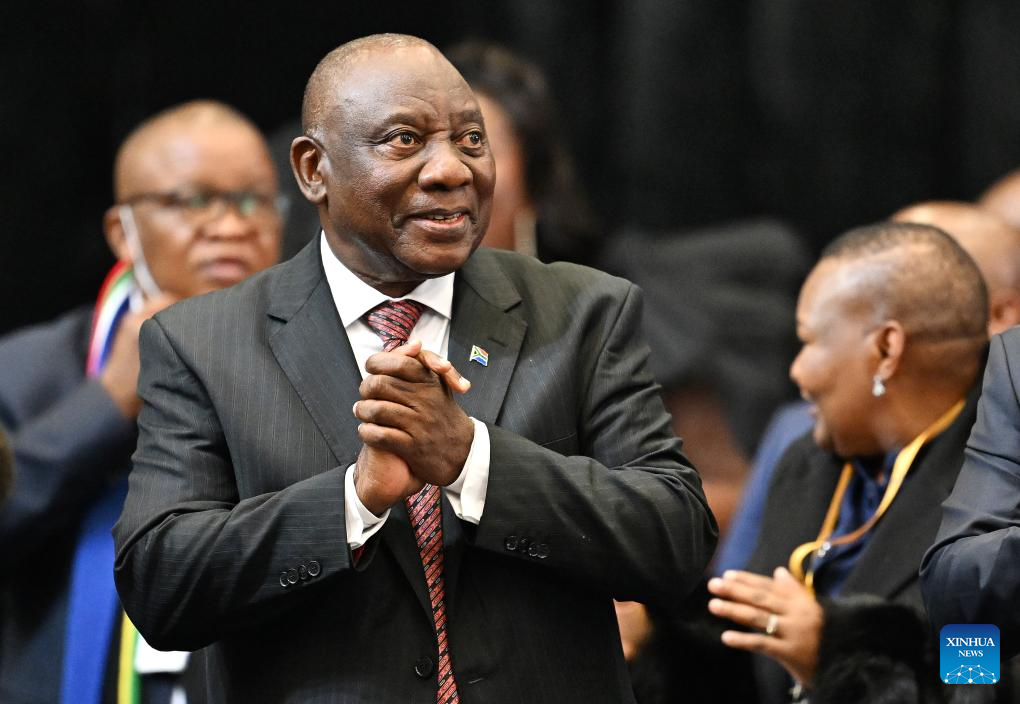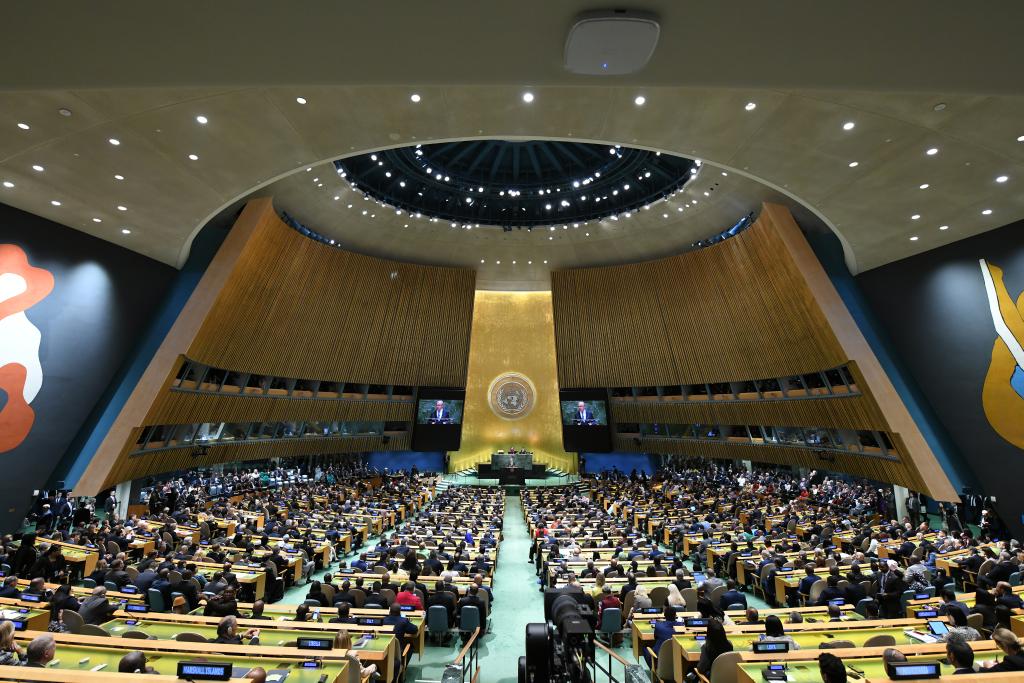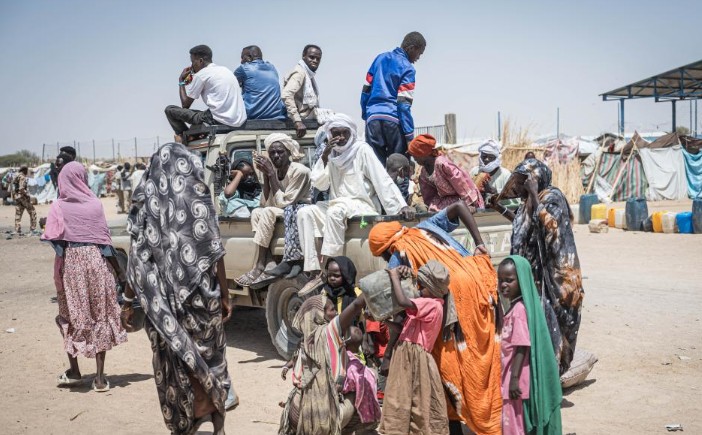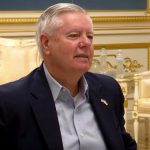Speaking in New York, the South African president warns global leaders that trade is being weaponised and calls for the renewal of a key US–Africa deal…reports Asian Lite News
South African President Cyril Ramaphosa has urged the United States to scale back tariffs introduced by President Donald Trump, warning that rising trade barriers are destabilising the global economy and threatening Africa’s development prospects.
Addressing the Council on Foreign Relations in New York on Tuesday, Ramaphosa revealed that his government is engaged in negotiations with Washington to soften the duties imposed on South African exports earlier this year. He framed the dispute as part of a broader shift in international commerce, where tariffs and trade restrictions are increasingly being wielded as tools of geopolitical power.
“We want tariffs that President Trump is seeking to levy on us and has already started, to be reduced,” Ramaphosa told an audience of policy experts and diplomats. His intervention followed a strongly worded speech at the United Nations General Assembly in which he accused major economies of “using trade as a weapon against a number of countries in the world.”
The South African leader argued that escalating trade wars risk depriving emerging economies of critical investment and access to markets. “Geopolitical shocks and unprecedented trade policy volatility are destabilising the global economy and jeopardising a critical source of development finance,” he said.
The tensions stem from Trump’s decision in August to impose new duties on a range of South African imports. The move followed several unsuccessful attempts by Pretoria to secure a more stable bilateral trade arrangement with Washington. While the White House has justified its tariff strategy as necessary to protect American industries, critics say it is undermining long-standing partnerships with key allies and trading partners.
South Africa, as the continent’s most industrialised economy, has traditionally enjoyed significant advantages under the African Growth and Opportunity Act (AGOA), a landmark treaty that grants duty-free and quota-free access to US markets for thousands of products from 32 African nations.
Ramaphosa stressed in New York that AGOA must continue if Africa’s industrial growth is to be sustained. “It has been a critical instrument in opening up our markets and encouraging investment,” he said. “Any erosion of AGOA would have profound consequences, not only for South Africa but for the continent as a whole.”
The treaty’s future has been thrown into doubt since Trump returned to the White House in January. Although the legislation was due for renewal, it failed to reach a vote in the US Congress last year, leaving African states facing a cloud of uncertainty. Trump’s tariff-driven trade policy has further shaken confidence that the preferential scheme will be extended.
South Africa has been among the chief beneficiaries of AGOA, exporting cars, agricultural products and manufactured goods to the US under the agreement. Analysts warn that the imposition of tariffs could erode these gains and deter much-needed investment into industries that provide thousands of jobs.
“South Africa has built a comparative advantage in sectors such as automotive manufacturing thanks to AGOA preferences,” said one Johannesburg-based economist. “Without those benefits, the competitiveness of our exports will be severely diminished.”
Ramaphosa’s intervention in New York highlights the delicate balancing act facing African leaders as global trade tensions intensify. While seeking to preserve vital ties with the US, South Africa has also been deepening its relationships with other powers, including China and the European Union.
At the UN General Assembly, Ramaphosa spoke of the need for “a rules-based, fair and transparent global trading system” and warned against unilateral measures that undermine multilateral institutions. His remarks echoed growing unease among developing countries that are caught in the crossfire of protectionist policies emanating from Washington and elsewhere.
Despite the rhetoric, Pretoria has few immediate tools to counter Washington’s tariffs. Instead, officials are banking on diplomatic pressure and negotiations to secure a compromise that preserves access to US markets.
The dispute comes at a difficult time for South Africa’s economy, which has been struggling with sluggish growth, high unemployment and rolling power cuts. Export industries are seen as critical to driving recovery, and any loss of market access would deepen the challenges facing Ramaphosa at home.
South African business groups have already voiced concern over the tariffs, warning that they threaten jobs and investment in manufacturing hubs such as Gauteng and KwaZulu-Natal.
For Ramaphosa, the stakes are both domestic and international. Securing relief from Washington could bolster confidence in his government’s ability to safeguard trade ties, while failure could risk weakening South Africa’s position within the global economy.
Negotiations with the US trade representative are expected to continue in the coming months, though officials caution that progress may be slow given the Trump administration’s emphasis on tariffs as leverage.
Ramaphosa, however, struck a note of cautious optimism. “We will continue to engage constructively with our partners in Washington,” he said, adding that South Africa remained committed to strengthening its ties with the US despite the recent tensions.
As the global economy grapples with renewed volatility, the outcome of these talks could prove decisive for South Africa’s export industries and for the future of America’s engagement with Africa. For now, Ramaphosa’s message in New York was clear: Africa cannot afford to become collateral damage in the world’s escalating trade wars.














